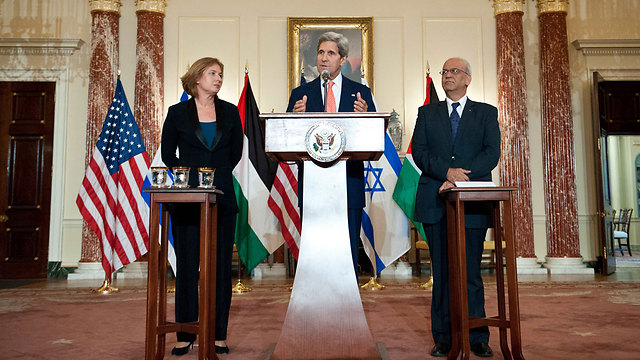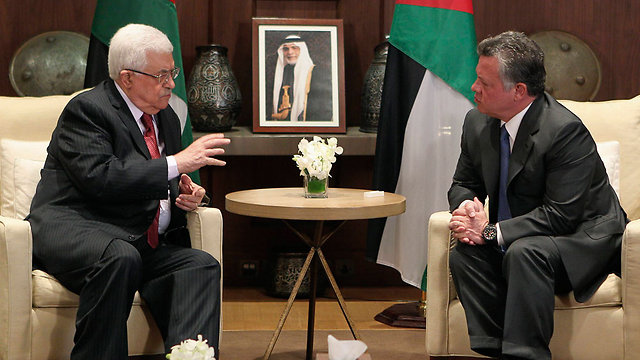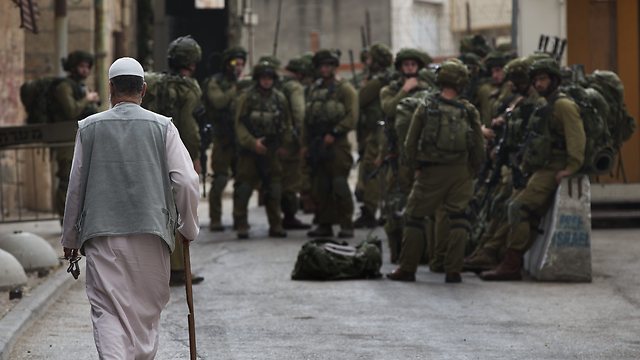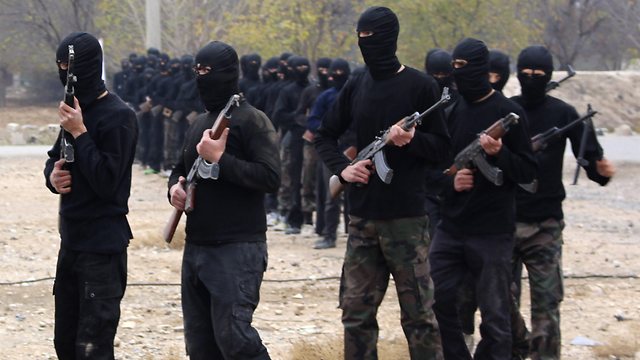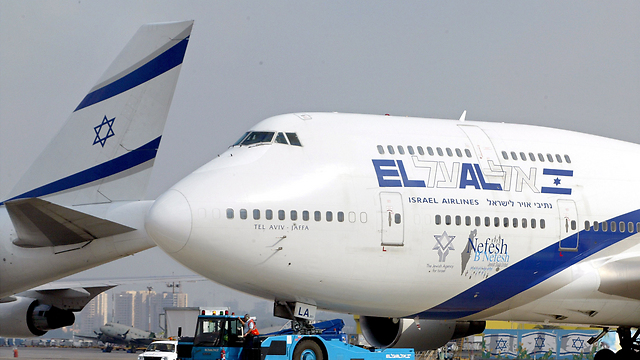According to the little information leaked from the negotiating room, it appears that all issues have already been mentioned there, including the core subjects which the parties must agree on not just for a permanent agreement, but even for an interim agreement. But Israel, and rightfully so, is unprepared to discuss the borders of the Palestinian state, the water issues, land exchanges and all the other subjects which have to do with territory before an agreement is reached on the security issue.
Relying on Jordanians
This isn't an abstract thing or a technical issue which will make Israel feel safe if solved. The security issue in an Israeli-Palestinian agreement is made up of at least seven or eight areas, and one can say without exaggerating that each of them is critical.
The most discussed issue is the demand for IDF presence on the Jordan River for a long but limited period of time, which will end once there is no longer a threat of weapon smuggling and infiltration of terror activists east of the Jordan River into the West Bank. Another threat is an invasion or attack by an Arab or Muslim army against Israel from the east (for example, an Iraqi army or any other state or non-state organization, as a result of the turmoil in the Arab world).
It's reasonable to assume that the American proposal devised by General John Allen, Kerry's advisor on security issues, will include several components, some technological and most related to the integration of an international force and cooperation with Jordan.
The Americans are expected to argue that what really prevents the smuggling of weapons and terror activists into the West Bank is not the thin presence of the IDF along the Jordan River and Dead Sea. The Americans will explain that what prevents the smuggling of rockets and antiaircraft shoulder-fired missiles, which will jeopardize the citizens of Israel and the Tel Aviv metropolitan area and civil aviation from Ben-Gurion Airport, are Jordan's security services.
According to the Americans, mostly thanks to the security-supporting presence of Jordan's royal regime, Israel is enjoying the ability to thwart smugglings like the ones which have turned the Gaza Strip into a huge launcher for high-trajectory weapons. So they will likely suggest an international system for tight cooperation with Jordan's security organizations, which will replace the current arrangement between Israel and the Hashemite Kingdom.
They will also suggest establishing a fence and joint policing forces for the Palestinians and reliable international organizations along the Jordan River and in the Dead Sea. The arrangements will include anti-man radars and perhaps even a fence which will be supervised by an international organization.
It's reasonable to assume that Israel will argue in regards to this matter that the Americans are indeed right when they say that security on the eastern border relies very much today on the goodwill of the Jordanian regime, but what will happen if as a result of the turmoil in the Arab world, the Islamist groups in the kingdom will have the upper hand? In such a case the Americans will suggest guarantees and perhaps even that the international force along the Jordan River will comprise mainly of American soldiers who Israel can trust for their reliability and desire to protect it.
Problems and solutions
Another issue related to the same matter is the supervision on the border crossings between the West Bank and Jordan. Only thanks to the Israeli control over the border crossing, it has been possible to prevent a massive spillover of al-Qaeda activists and explosive devices into Judea and Samaria and from there into the State of Israel.
Israel will also note that the attempt to place European inspectors at the border crossings between the Gaza Strip and Egypt failed miserably, and that at the first opportunity they got following the Hamas coup in 2007 the supervisors ran for their life into Israeli territory. The Americans will likely suggest a technical solution which will allow Israel to monitor from afar whoever tries to cross the border with Jordan.
A second fundamental issue, perhaps even more important than the supervision along the Jordan Valley, is thwarting terror in Judea and Samaria by collecting intelligence and conducting arrests. The Israeli claim is that only thanks to the operational and intelligence freedom of action that the IDF and Shin Bet have on all territories, including those under full Palestinian control, it has been possible to foil more than 80% of terror organizations or individual acts of terror which are threatening not only Jews but also the survival of the Palestinian Authority.
Israel says it must leave in its hands, to some extent, the option of entering territories and supervising them even after a Palestinian state is established, otherwise it will be impossible to thwart terror. This demand is justified mainly if Palestinians scattered in other countries, for example in Lebanon, will be allowed to return to the territories of the future Palestinian state.
Even if Abbas waives the right of return, he will be forced to take in thousands of Palestinians who are residing at the moment in what are referred to as refugee camps in Lebanon, many of whom are already active in Salafi and global jihad organizations. At the moment they are operating from Lebanon, and when they are given the right of return they will settle in the West Bank, which will turn into a branch of the global jihad – with all that it implies for Israel's security.
The American solution for this issue will likely be establishing a join American-Palestinian-Israeli super-system. Its goal will be to ensure that the PA's security organizations are working to thwart terror attacks effectively. In other words, not just arrests in the revolving door method (in the best-case scenario) or warning terrorists to escape (in the worst-case scenario) like what is happening today, but complete and effective thwarting: Arrests, investigation, prosecution and imprisonment for long periods of time, just like the PA treats those terrorists when it is warned by Israel that they are jeopardizing its survival.
Al-Qaeda headed to Judea and Samaria
Another issue is warning stations like the ones Israel has at the moment on several high mountain tops in Judea and Samaria. Israel needs these stations in order to warn against aerial threats, missiles, aircraft, etc, and also against foreign armies approaching the Jordan Valley. That also includes warning against the new threat on Israel taking shape in Syria.
The threat stems from al-Qaeda becoming established in Syria in the form of the Jabhat al-Nusra organization, which already has some 10,000 terror activists and fighters in the country today, and is slowly but surely taking over the huge and modern arms arsenals of the Assad army. The danger is that Jabhat al-Nusra will use these weapons against Israel or smuggle them into the West Bank through Jordan.
The warning systems are needed to provide Israel with early warning against such dangers, but the Palestinians object to Israeli presence on the territory of the future state. The solution Kerry and General Allen will suggest is that the warning stations will be manned by American operators, in addition to observation balloons and listening and other devices. It's very possible that in this context General Allen will adopt the model the Americans suggested at the time for Israeli presence on Mount Hermon in case of an agreement with Syria.
Can we fly over Palestine?
There are other issues on the agenda, like controlling the airspace over Judea and Samaria: Where do Israel's freedoms of air end? The Palestinians are demanding full sovereignty over the airspace as they are demanding over the land. But if this demand is fulfilled, will Israel be able to fly in the Palestinian airspace using remote-piloted vehicles in order to collect intelligence? What about Air Force drills? Will this not clash with the freedoms of air of civil planes landing at Ben-Gurion Airport?
Another question they Americans will have to provide an answer to is the control over the electromagnetic space – not just cellular phone operators and communication networks, but also Palestinian radio stations which may disrupt Ben-Gurion Airport's communication with civilian planes seeking to take off or land.
All these are issues which are difficult to solve, and it's completely reasonable to assume that the American response proposed by General Allen will not satisfy Netanyahu and Defense Minister Moshe (Bogie) Ya'alon. In principle, the American response must suggest a satisfying arrangement for three fundamental issues:
- What will happen in case of a coup in the Palestinian country or in Jordan, or in both at the same time, and radical Islamist groups rise to power there?
- What will happen if the American administration has an interest to conceal information from Israel and not to pass on what the international monitoring system discovers (like what happened recently for months in the Americans' secret channel with the Iranians)?
- How will the Gaza issue be handled as part of the agreement, and what will be the fate of the safe passage slated to be set up between Gaza and the West Bank?
Until an answer to these issues is found, the security issue in an Israeli-Palestinian agreement will not be solved, and that is likely what will thwart the attainment of a permanent agreement in the near future. Let's hope that the sides at least reach an American-brokered interim agreement.















